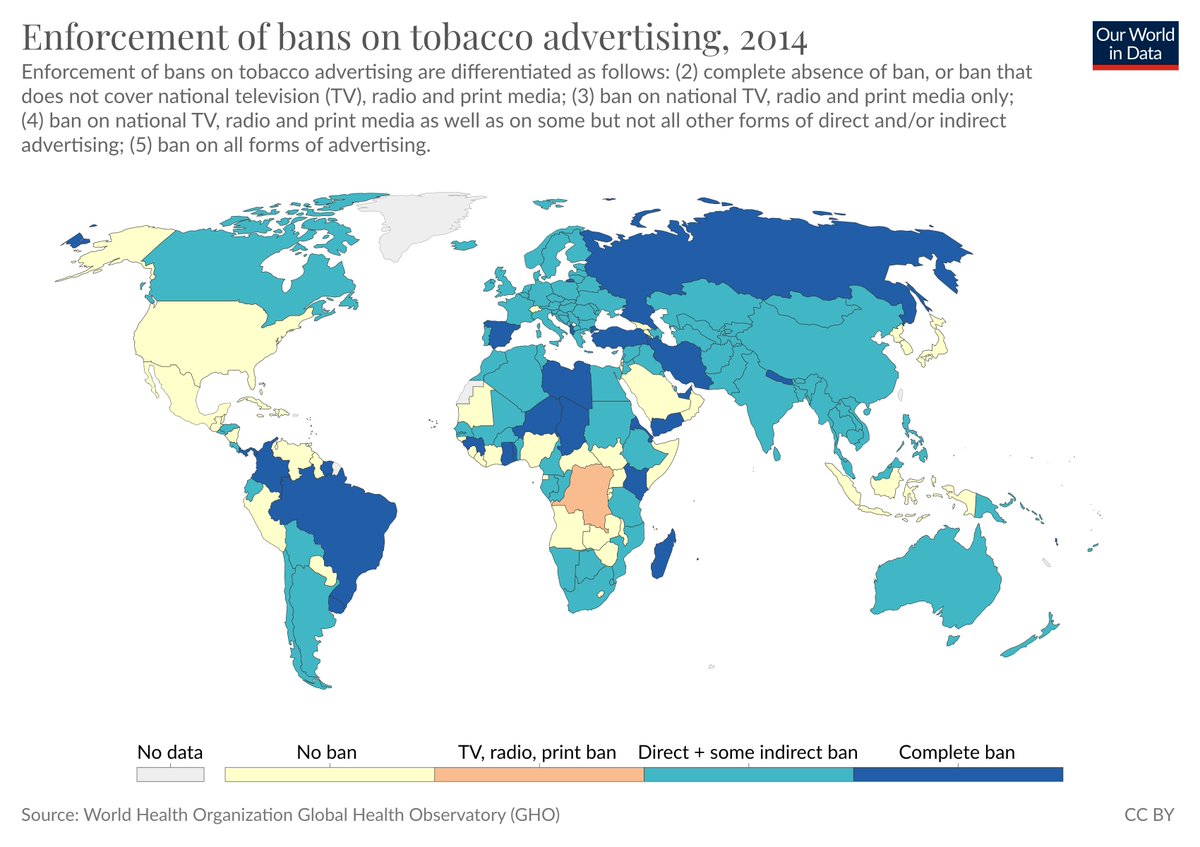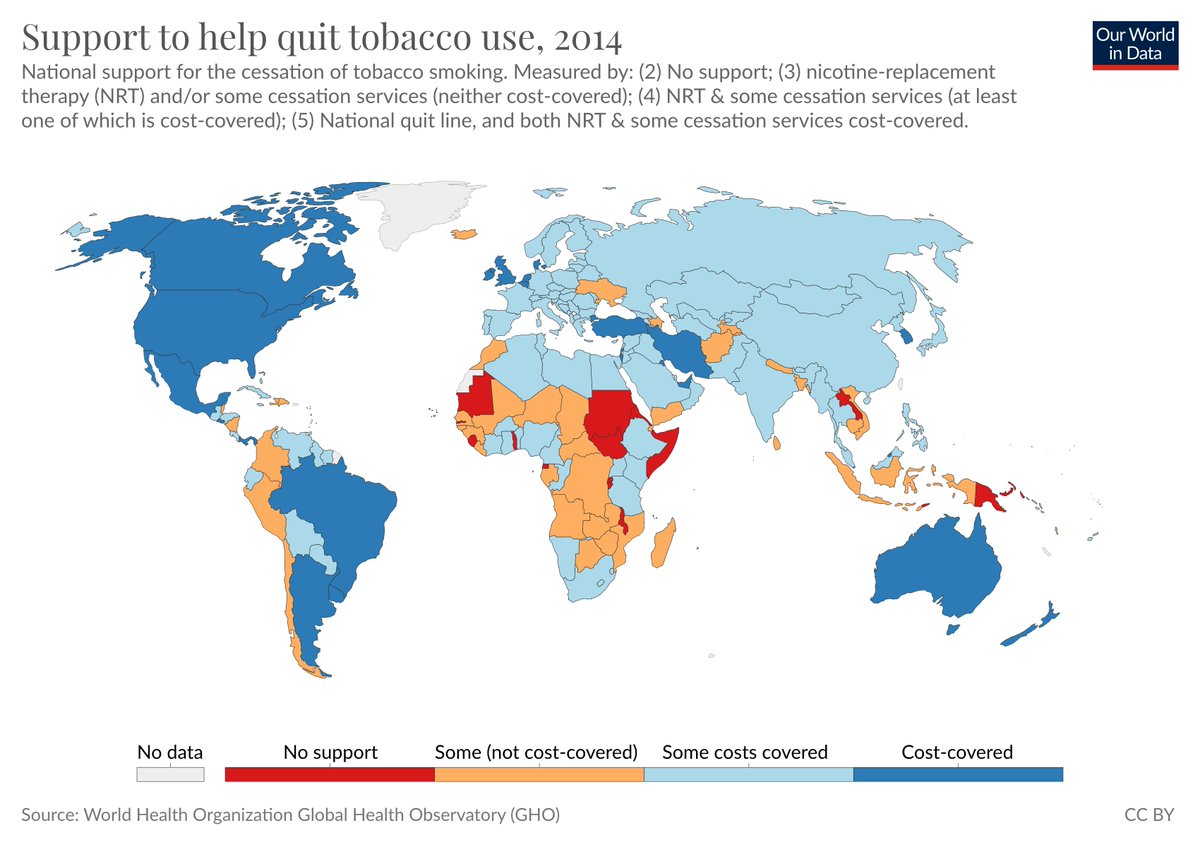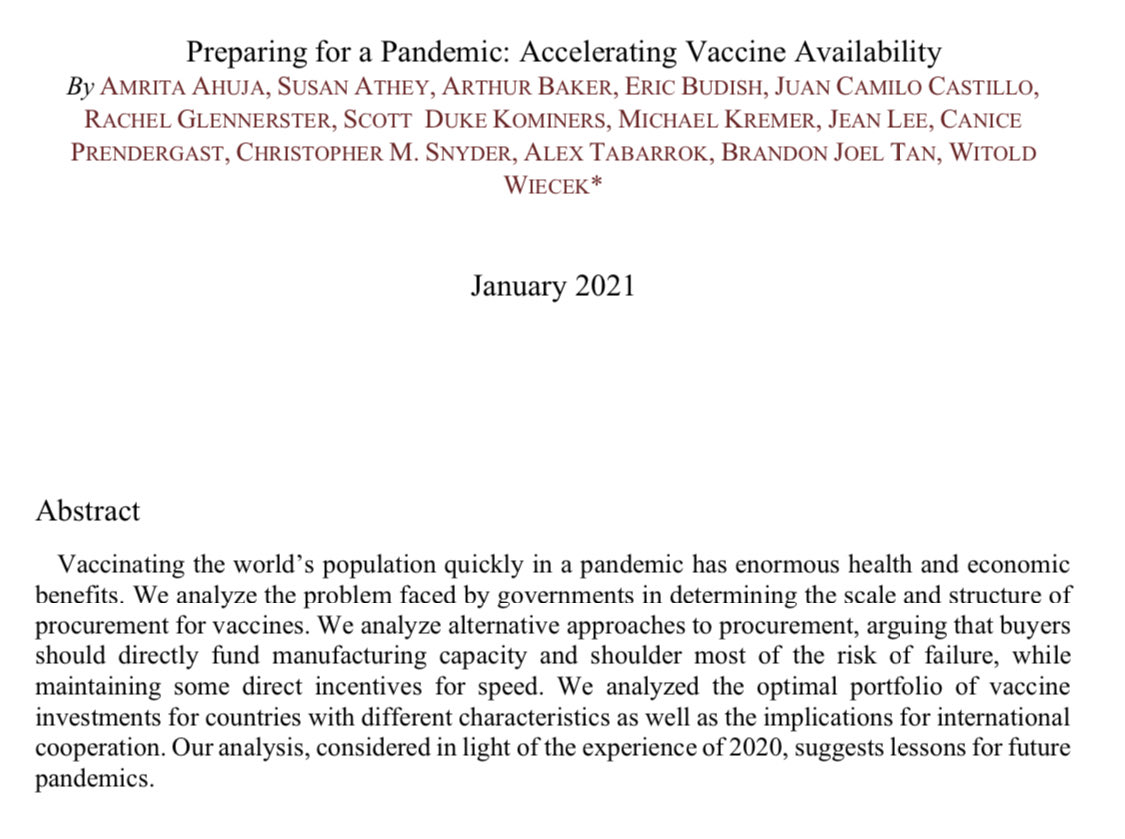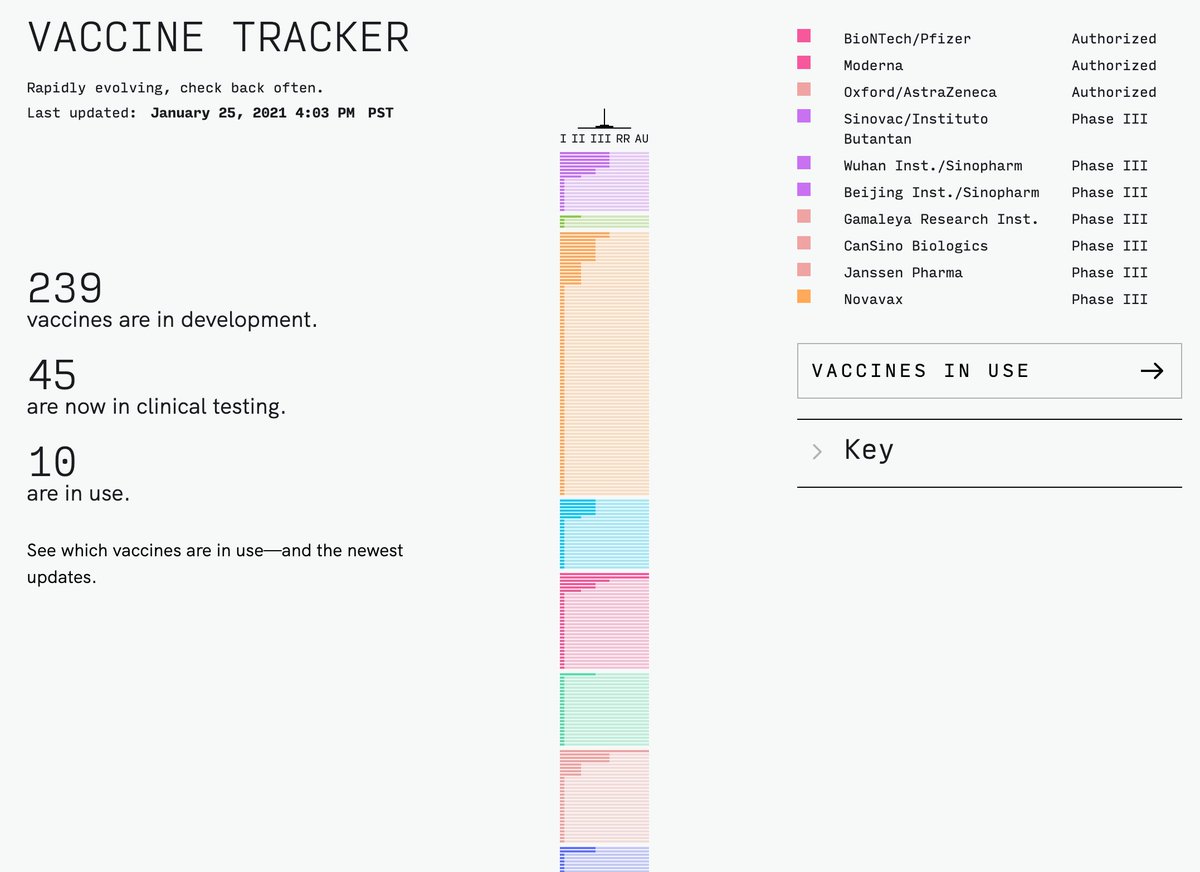
Health researchers estimate that every year 8 million people die an early death due to smoking. This means that 15%(!) of global deaths are attributed to smoking.
Smoking causes incredible suffering globally – but we can win the fight: A thread. 👇
Smoking causes incredible suffering globally – but we can win the fight: A thread. 👇
All data and research in this thread can be found in our @OurWorldInData entry on smoking: ourworldindata.org/smoking
With the knowledge that smoking causes cancer and the evidence that cancer didn’t only increase with smoking, but also declined when smoking declined, it may appear obvious that smoking kills.
But it wasn't obvious *at all* until the second half of the 20th century.
But it wasn't obvious *at all* until the second half of the 20th century.
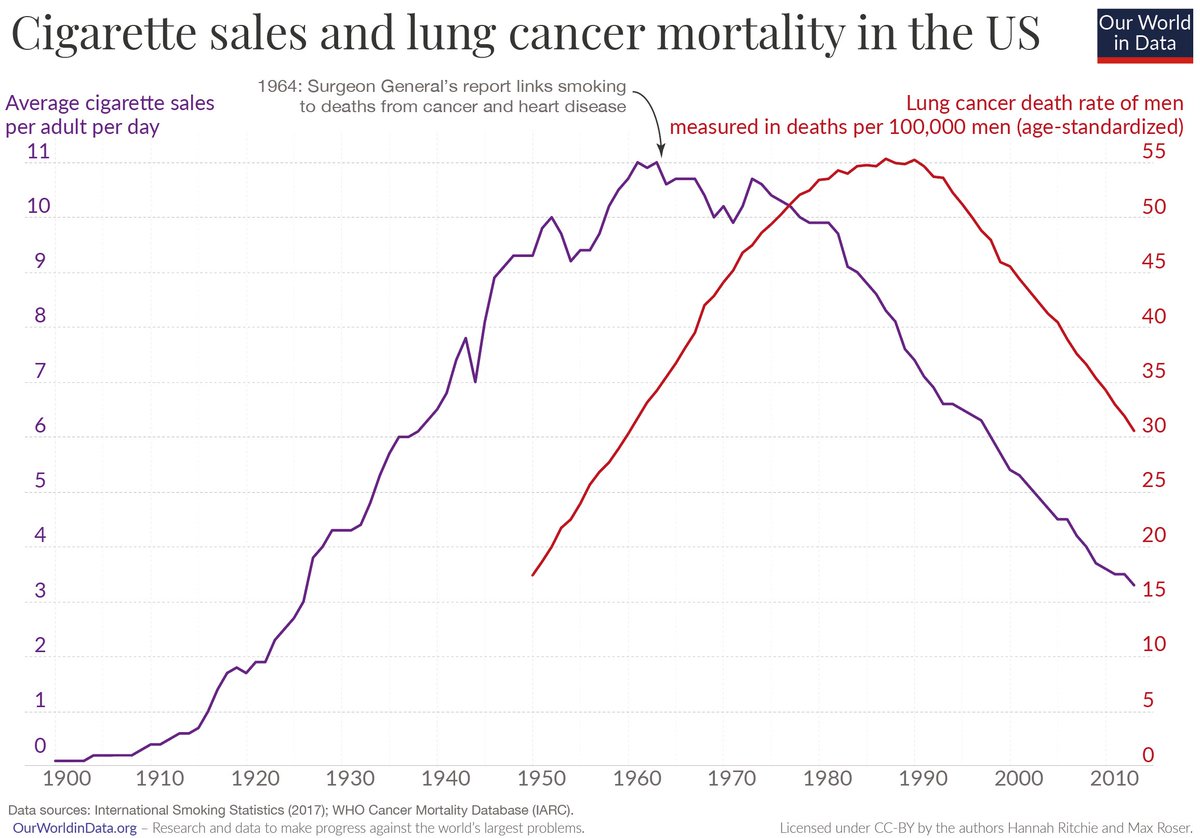
People who do not have a high opinion of statistical analysis sometimes fall for the idea that statistics are incapable of capturing the reality that is right in front of our eyes.
The insight that smoking kills is a clear example where the opposite is true.
The insight that smoking kills is a clear example where the opposite is true.
It was only through statistical analysis that the world learned that smoking causes cancer and heart disease.
The opening chapter of @TimHarford's recent book on statistics tells the story in detail: amazon.com/Data-Detective…
The opening chapter of @TimHarford's recent book on statistics tells the story in detail: amazon.com/Data-Detective…
I think that's often the case: Many of the most fundamental and most important facts are not visible even if they are right in front of you – often you need statistics to see what your world actually looks like.
For many decades even smokers themselves were entirely blind to the fact that their habit was poisoning them.
I have an old mountaineering guide that explains that one should at times take a pause while climbing to smoke a cigarette as it “opens up the lungs”.
I have an old mountaineering guide that explains that one should at times take a pause while climbing to smoke a cigarette as it “opens up the lungs”.
Thanks to the statisticans we now know that smoking kills – and in today's world more than one in five cancer deaths worldwide (22% in 2016) are attributed to smoking. 
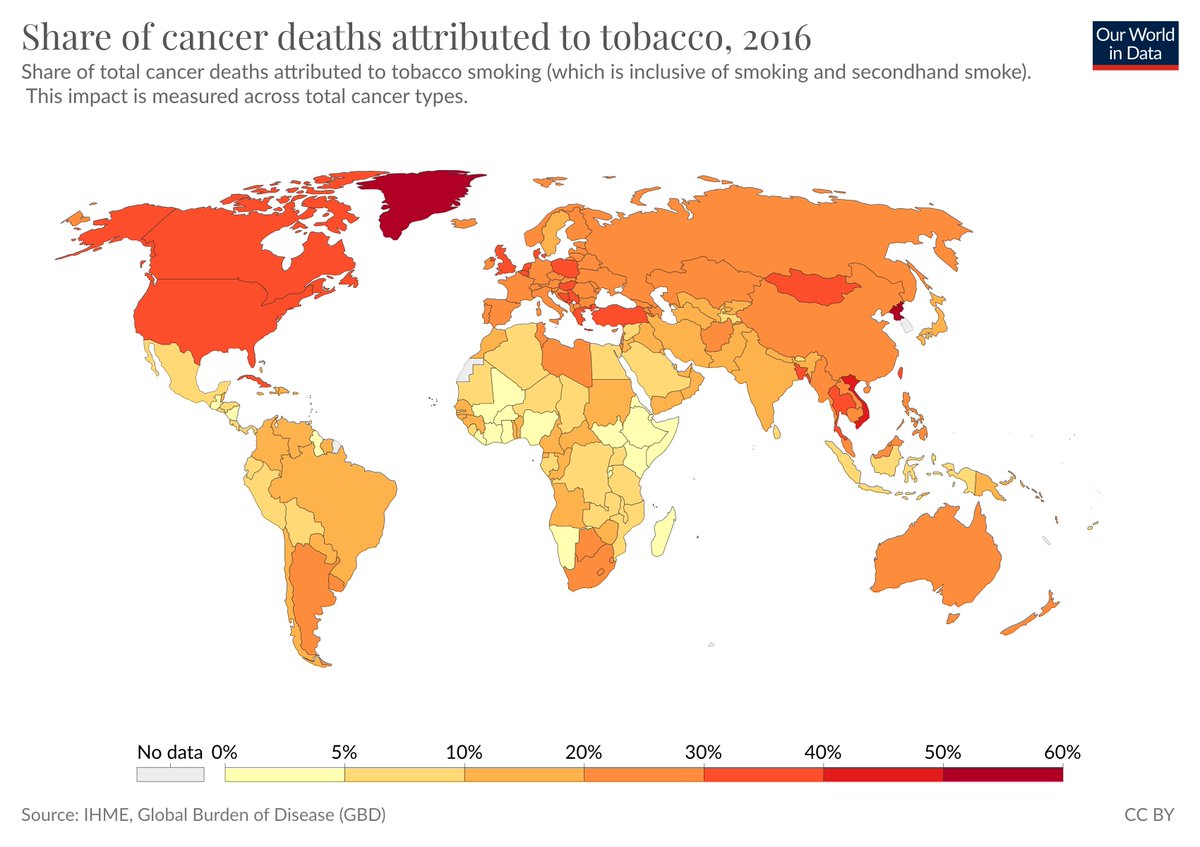
Epidemiologists Prabhat Jha and Richard Peto estimate that "If current smoking patterns persist, tobacco will kill about *1 billion people* this century."
nejm.org/doi/10.1056/NE…
It is on on to prevent this.
nejm.org/doi/10.1056/NE…
It is on on to prevent this.
The first step was to understand just how large the health impact from smoking is.
Once people learned that smoking kills, they could act on it.
It took some time, but they did. The chart shows how the sales of cigarettes plummeted over recent decades.
It took some time, but they did. The chart shows how the sales of cigarettes plummeted over recent decades.
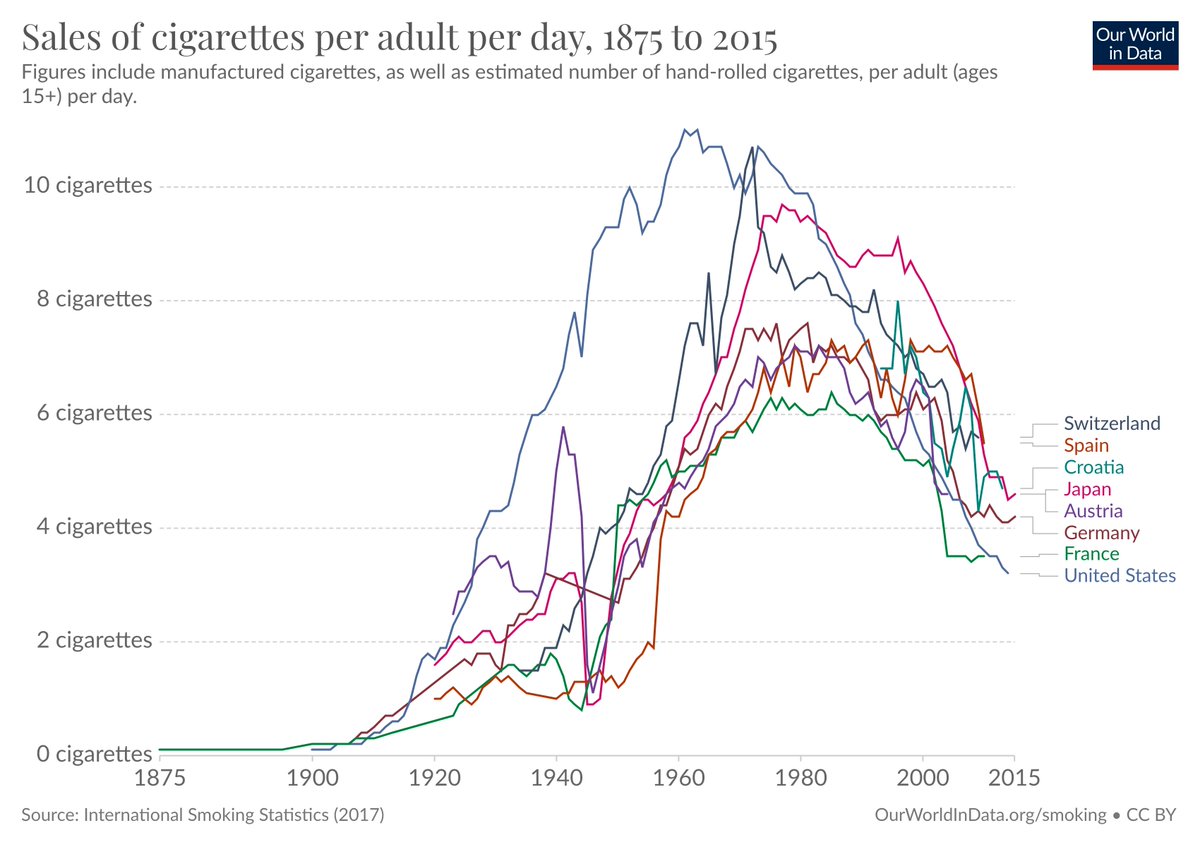
The decline of smoking is an extraordinary example of a successful health campaign.
A number of factors mattered – all of them clear reminders that it is wrong to believe that public policy is not able to oppose the interests of big business when big business is harming people.
A number of factors mattered – all of them clear reminders that it is wrong to believe that public policy is not able to oppose the interests of big business when big business is harming people.
By taxing cigarettes very heavily, governments made cigarettes much, much more expensive.
[the idea to reduce greenhouse gas emissions by putting a price on carbon is the same idea]
[the idea to reduce greenhouse gas emissions by putting a price on carbon is the same idea]
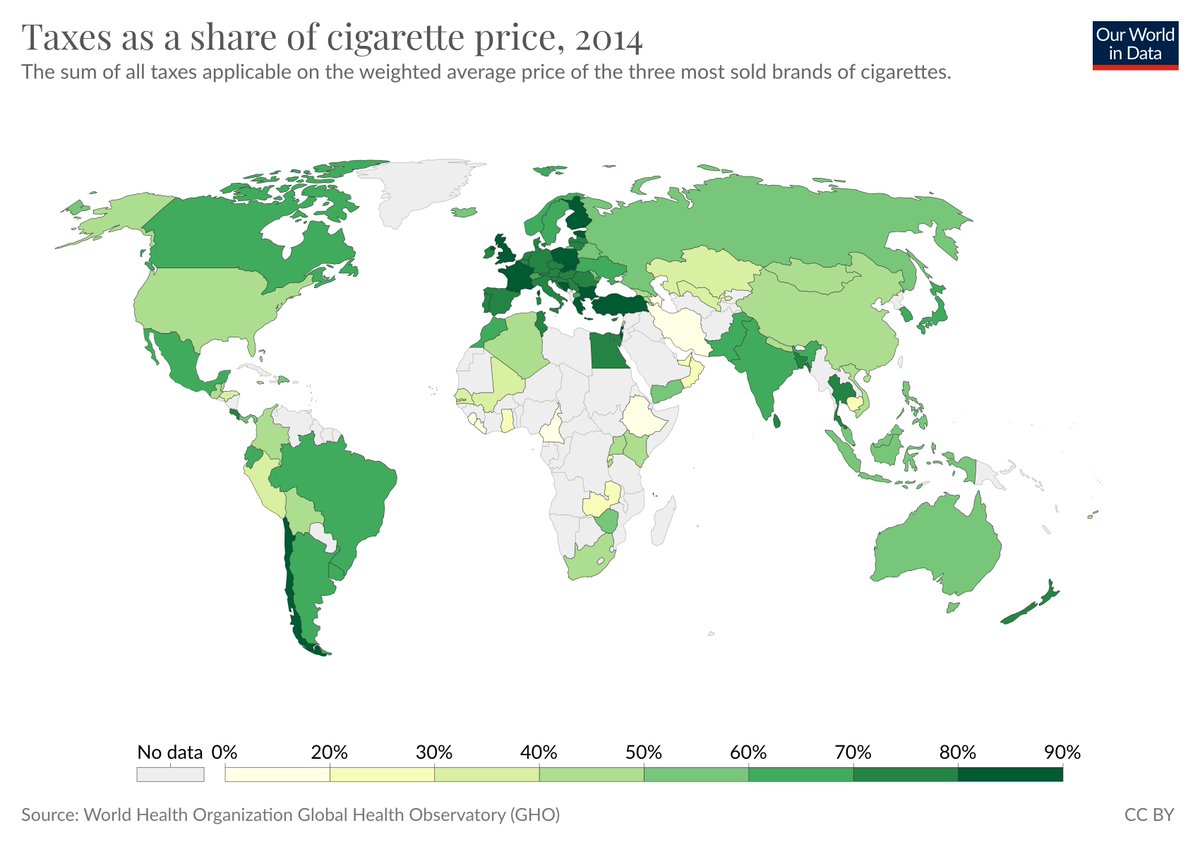
One argument why government intervention is warranted is the fact that a large number of people who die from smoking are not smokers themselves.
1.2 million of those who die from smoking every year are passive secondhand-smokers.
1.2 million of those who die from smoking every year are passive secondhand-smokers.
But most people who die from smoking are smokers, so that perhaps the biggest factor for success was the appeal to people’s self-interest to stay alive.
This simply meant to communicate the scientific insight that smoking kills you.
This simply meant to communicate the scientific insight that smoking kills you.
There is also a self-reinforcing effect in all of this: once smoking becomes less common the peer-pressure for smoking disappears and the social norms turn against cigarettes.
Where are we globally in the fight against smoking?
We've seen the trajectories that richer countries took, smoking was extremely common in many rich countries some decades ago.
For some time it looked as if people in poorer countries follow the path of richer countries. As they became richer they started to smoke more.
For some time it looked as if people in poorer countries follow the path of richer countries. As they became richer they started to smoke more.
But recently this seems to have changed and smoking is becoming less common in poorer countries too.
They are not following the stupidity of the early industrializers.
Whether in richer countries or in poorer countries, the share of people who smoke is declining.
They are not following the stupidity of the early industrializers.
Whether in richer countries or in poorer countries, the share of people who smoke is declining.
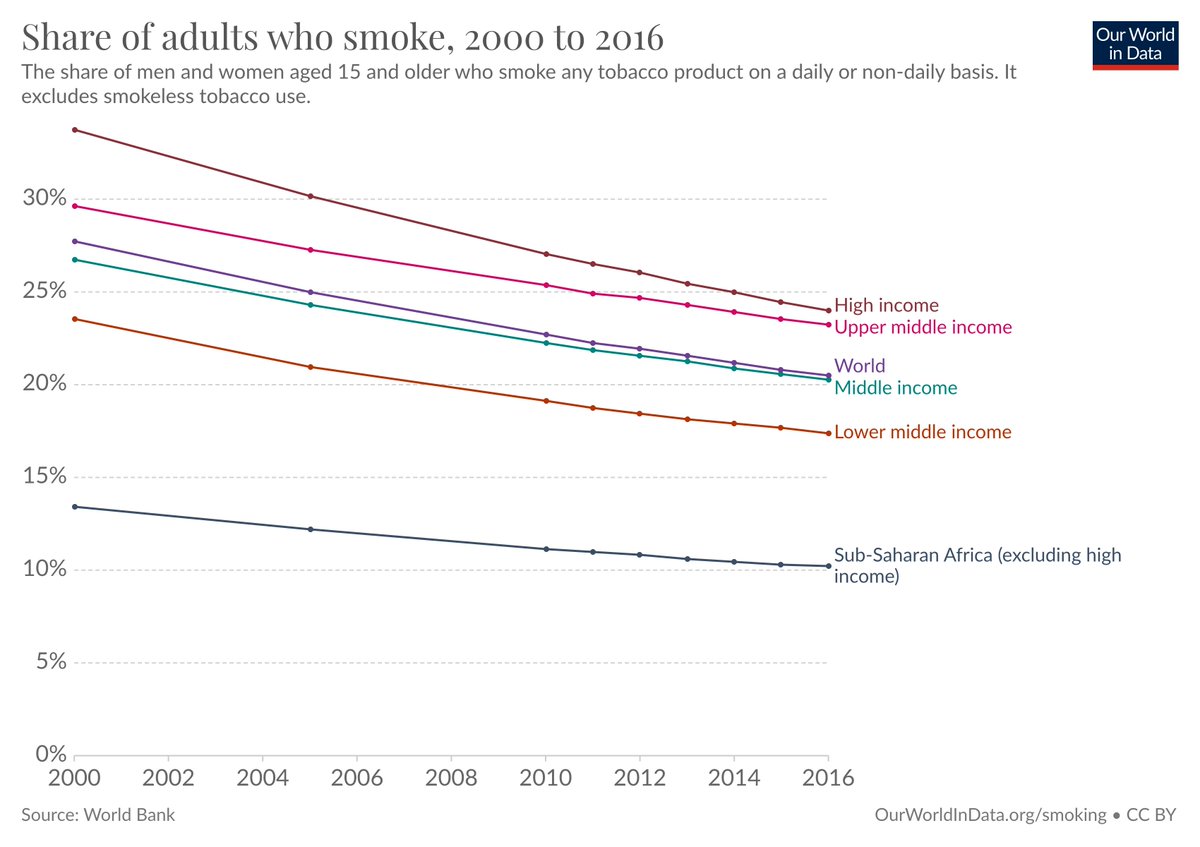
As a consequence of this, the rate of premature deaths attributed to smoking is declining in most countries in the world.
This chart shows how the death rate changed since 2000. In all countries above the grey line the death is now lower than back in 2000.
This chart shows how the death rate changed since 2000. In all countries above the grey line the death is now lower than back in 2000.
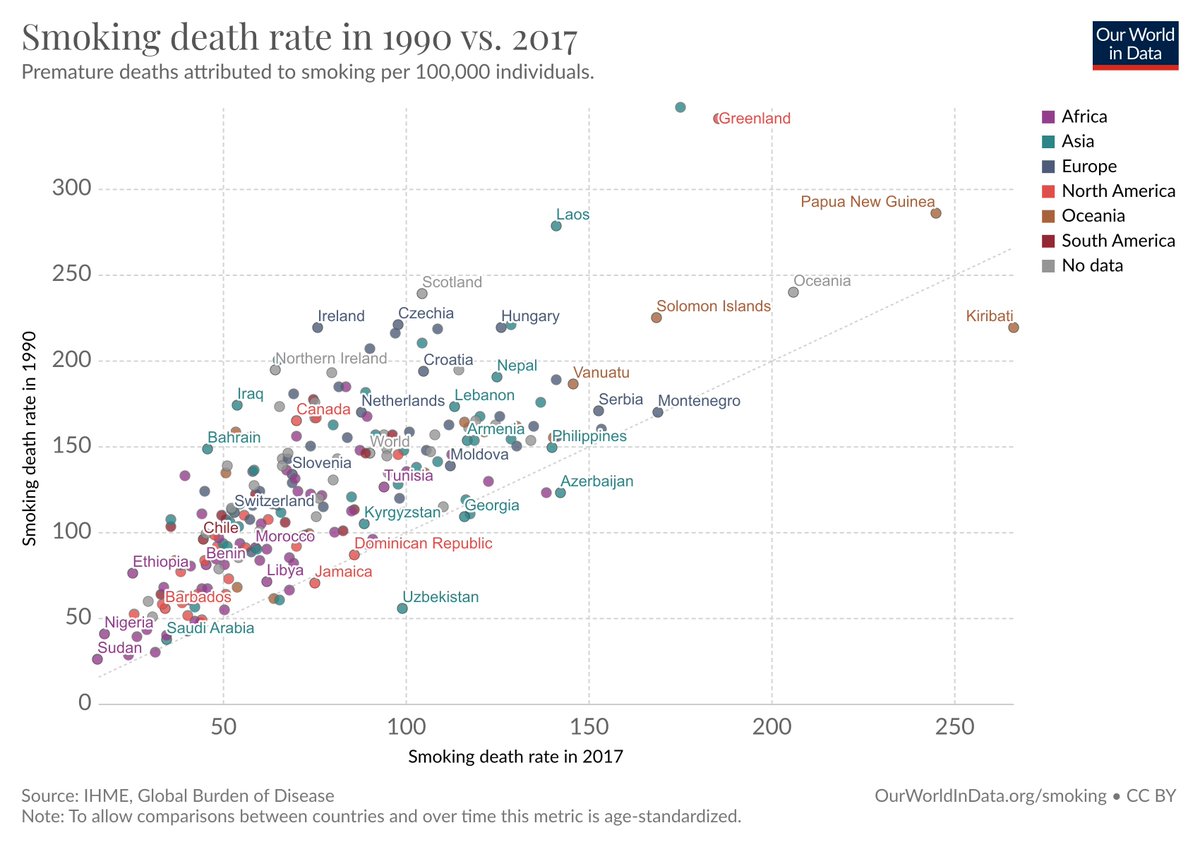
Smoking is one of the world’s very largest health problems.
The situation is still terrible and smoking will remain one of the very largest health problems in the world for many years to come.
The situation is still terrible and smoking will remain one of the very largest health problems in the world for many years to come.
But we can win the fight against smoking: as we see in the data, the share of the world that is following this crippling path is declining.
Often we think of medical innovations (like vaccines or surgeries) as the scientific breakthroughs that save most lives.
But the progress against smoking shows that this careful work of *statisticians* must be among the scientific breakthroughs that saved most lives.
But the progress against smoking shows that this careful work of *statisticians* must be among the scientific breakthroughs that saved most lives.
But I can see that you might be a bit skeptical when the statistician claims that statisticians are those that save most lives.
/end/
/end/
• • •
Missing some Tweet in this thread? You can try to
force a refresh
